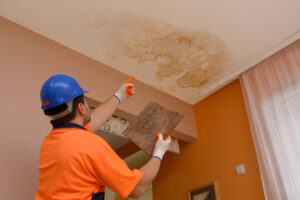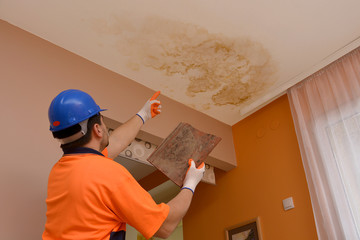If you or a loved one has experienced Water Damage, you know how stressful it can be. Here are some helpful tips to help you deal with the situation. First, understand that water damage is devastating and causes different losses. It is a process that causes devastation, which includes rotting of wood, the growth of bacteria and mold, rusting of steel, swelling of composite woods, and delamination of materials. Fortunately, many ways to mitigate the damage and get back into your life as quickly as possible.
 If the leak is small, removing the moisture will be fairly straightforward. Once the area is clean, you can start repairing the damaged components. If necessary, you can buy or make your disinfectant. This will help prevent the growth of mold spores. It would be best if you considered hiring a professional water damage to come in and assess the damaged area. If unsure how to proceed, you can use a bleach solution or a homemade disinfectant.
If the leak is small, removing the moisture will be fairly straightforward. Once the area is clean, you can start repairing the damaged components. If necessary, you can buy or make your disinfectant. This will help prevent the growth of mold spores. It would be best if you considered hiring a professional water damage to come in and assess the damaged area. If unsure how to proceed, you can use a bleach solution or a homemade disinfectant.
You are drying your home as soon as possible after a flood is essential. Black water may contain pathogens, which can cause serious illness. Furthermore, damaged appliances, wiring, and gas lines can be costly to replace. In addition to structural damage, water damage can extend into other scenarios, including losing personal items and your home’s foundation. If you are experiencing Water Damage in your home, contact a professional immediately to get it taken care of.
Your home insurance provider will probably take photos of the affected area. It would be best if you took pictures of damaged objects to justify the replacement cost. Although most objects in a home are affected by water damage, you should also consider having objects in a drawer or closet professionally cleaned. Whether or not you decide to do the cleanup yourself or hire a professional, the costs involved may be reimbursed. Your home insurance company will likely provide you with more information as the restoration continues.
When dealing with Water Damage, the first thing you should do is to shut off the electricity. If water is coming from an outlet, remove any porous material, such as electronics. You should also remove anything wet that might be damaged. Once you’ve taken care of these things, you can start the restoration process. If you can’t salvage anything, don’t worry – there are professional services that will take care of this for you.
Insurance companies often include a loss of use section in their policies. This can help cover any additional costs while the repairs are underway. The loss of use coverage may also help cover furniture rental and food expenses. Taking a trip to the grocery store for a meal is an option if you cannot use your home for a while. If you need to get out of your home during a water damage situation, contact your insurer to find out how to file a claim.
Homeowner’s insurance covers water damage, provided the incident was sudden and accidental. However, it doesn’t cover water damage resulting from a lack of home maintenance, such as a leaking roof. If you’re buying a home for investment purposes, you should get a thorough home inspection before signing a deal. Then, if you’re not comfortable with the price, you can negotiate a lower price with the seller.
Besides water damage, you should also ask about a CMA report to know how much the home is worth. If you’re willing to pay more, this will give you a better idea of what it will take to fix any water damage. Also, water damage repair estimates can be helpful when negotiating a lower price with the homeowner. If you think you’re willing to pay more than the home is worth, you should not purchase it.
It’s important to know that most homeowners’ insurance policies do not cover flood damage. However, fire insurance will cover the damage caused by firefighters and water from the living room. In this situation, the insurance company will send an adjuster to your home to assess the damage and help you determine the best course of action. You’ll be surprised by the difference in cost and disruption when you hire a professional. But, it would be best if you didn’t go it alone – it’s always best to seek professional advice before hiring a restoration company.
If the water damage is caused by sewer backup, you’re covered if you have separate flood insurance. While this isn’t covered under your homeowner’s insurance policy, purchasing a separate flood insurance policy is possible if you live in an area where flooding happens frequently. And remember that there are no guarantees. A professional inspection of your home and basement is your best defense against Water Damage. You should also make sure to maintain your home properly.

